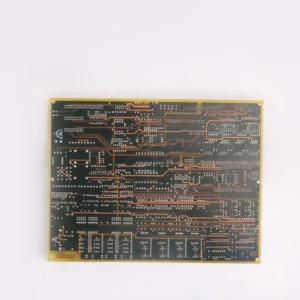

Add to Cart
The GE DS200TCQCG1BJF is an Analog IO Expander Board (TCQC) integral to the Mark V LM Series within GE’s Speedtronic Control System. It enhances the system’s capability to process additional analog signals from I/O core terminal boards, handling scaling, conditioning, and distribution of critical data for turbine operation. Key functions include providing excitation for LVDTs/LVDRs, terminating IONET connections, and processing megawatt transducer signals—scaling them before transmission to the STCA board via the 19PL connector. It also conditions pulse rate inputs and exchanges generator/line signals with the STCA board through the JE connector, making it vital for seamless turbine control.
Key Features:
Comprehensive Signal Processing & Distribution
The board excels in managing diverse analog signals, it scales and
conditions megawatt transducer inputs, pulse rate signals, and
generator/line data. It routes processed signals to critical
components—sending shaft speed/flow data to the TCQA board via JE
and megawatt signals to the STCA board via 19PL. Additionally, it
provides excitation for LVDTs/LVDRs, ensuring accurate position
sensing essential for turbine actuation.
Servo Valve Control Circuitry
Dedicated circuits manage servo valve regulation, jumpers scale
current from the TCQA board to position valves, with reference
feedback and current ranges set via hardware. The board integrates
servo clamp relays applying positive current to valves and suicide
relays grounding signals to let valves drift to bias positions.
Suicide relays activate via signals from the CSP routed through the
TCQA board, ensuring safe, controlled valve operation during fault
conditions.
IONET Integration & System Compatibility
It hosts IONET termination for specific cores when the optional
21> is installed, enhancing communication within the Speedtronic
system. Its standardized connectors ensure seamless interaction
with the STCA and TCQA boards, maintaining signal integrity across
the control architecture. This integration is critical for
synchronizing turbine subsystems, from sensors to actuators.
Tailored for Turbine-Specific Needs
By focusing on high-pressure shaft speed, liquid fuel flow, and
servo valve control—parameters vital to gas/steam turbine
performance—the board addresses industry-specific demands. Its
ability to condition and route these signals with precision
supports efficient turbine operation, reduces response latency, and
enhances overall system reliability in power generation and
industrial settings.
